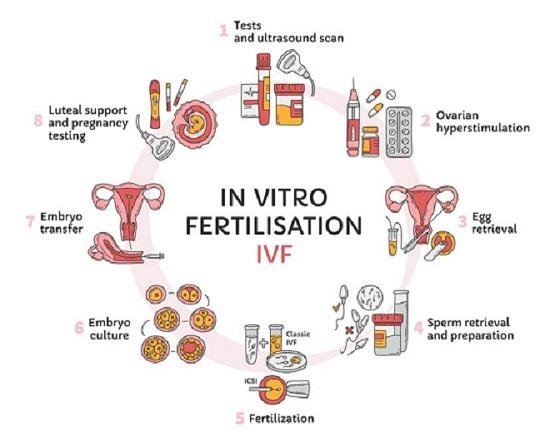Fertility care facilities offer various services and support to enable couples to achieve their reproductive goals. Infertility specialist diagnoses fertility issues and provides treatments, along with educational support to help patients understand their options. Here are some of the things included in fertility care:
Understanding Fertility
Understanding fertility and what factors can affect it can help you comprehend sterility issues. Fertility is the natural capability to conceive a child. Several issues may affect fertility, such as age, previous health history, lifestyle, and current diseases. Age affects fertility in women because their body’s reproductive capacity decreases with age to a certain age. In men, sperm quality and sperm concentration may be affected by diseases such as diabetes or environmental factors.
Initial Assessment and Diagnosis
The initial assessment involves a thorough evaluation, including medical history and physical and fertility examinations. Tests for women may include blood testing for hormonal profiles and ultrasound examination for the assessment of the ovaries. A hysteroscopy with hysterosalpingography (HSG) may be done to evaluate the uterine cavity and the fallopian tubes. In men, tests such as sperm morphology, sperm concentration, and motility are done. These evaluations enable an infertility specialist to determine whether there is any other underlying condition affecting fertility and the course of action to be taken.
Lifestyle and Wellness Support
Fertility care specialists will emphasize lifestyle and wellness to achieve better reproductive health. Healthcare providers can recommend lifestyle changes that can improve fertility. These may consist of eating a balanced diet, exercising regimens, stress control, and drug-free lifestyles. When preliminary tests show that there might be fertility problems, some possible interventions are suggested. These can range from less invasive methods, such as fertility medication, to more advanced reproductive procedures. Some of these fertility treatments and procedures include:
In Vitro Fertilization (IVF)
IVF is an assisted reproductive technology in which eggs are collected from a woman’s ovaries and fertilized outside their body. These embryos are then implanted into the uterus. Some women may opt to have testing performed on the embryo prior to transfer. IVF helps in the production of a healthy embryo that has the potential to grow into a baby. This procedure can be done by couples with fertility problems such as blocked tubes or male infertility.
Intrauterine Insemination (IUI)
In this procedure, sperm is directly placed into a woman’s uterus during her ovulation period, increasing the chances of sperm reaching the egg. After the insemination, the woman may be advised to rest for a short period. Wait about two weeks before taking a pregnancy test to determine if the procedure was successful.
Egg or Sperm Donation
If a couple is having issues with the eggs or sperm, they can opt to use donors’ eggs or sperm. This allows individuals or couples to conceive with the help of a donor. Both egg and sperm donation require careful consideration and understanding of the potential outcomes.
Visit An Infertility Specialist
Fertility care addresses the medical, lifestyle, and emotional aspects of reproductive health. With knowledge about fertility and available resources, couples and anyone can improve the possibility of conception and build their expected family. Schedule an appointment with a fertility care doctor for more information and treatment options.










